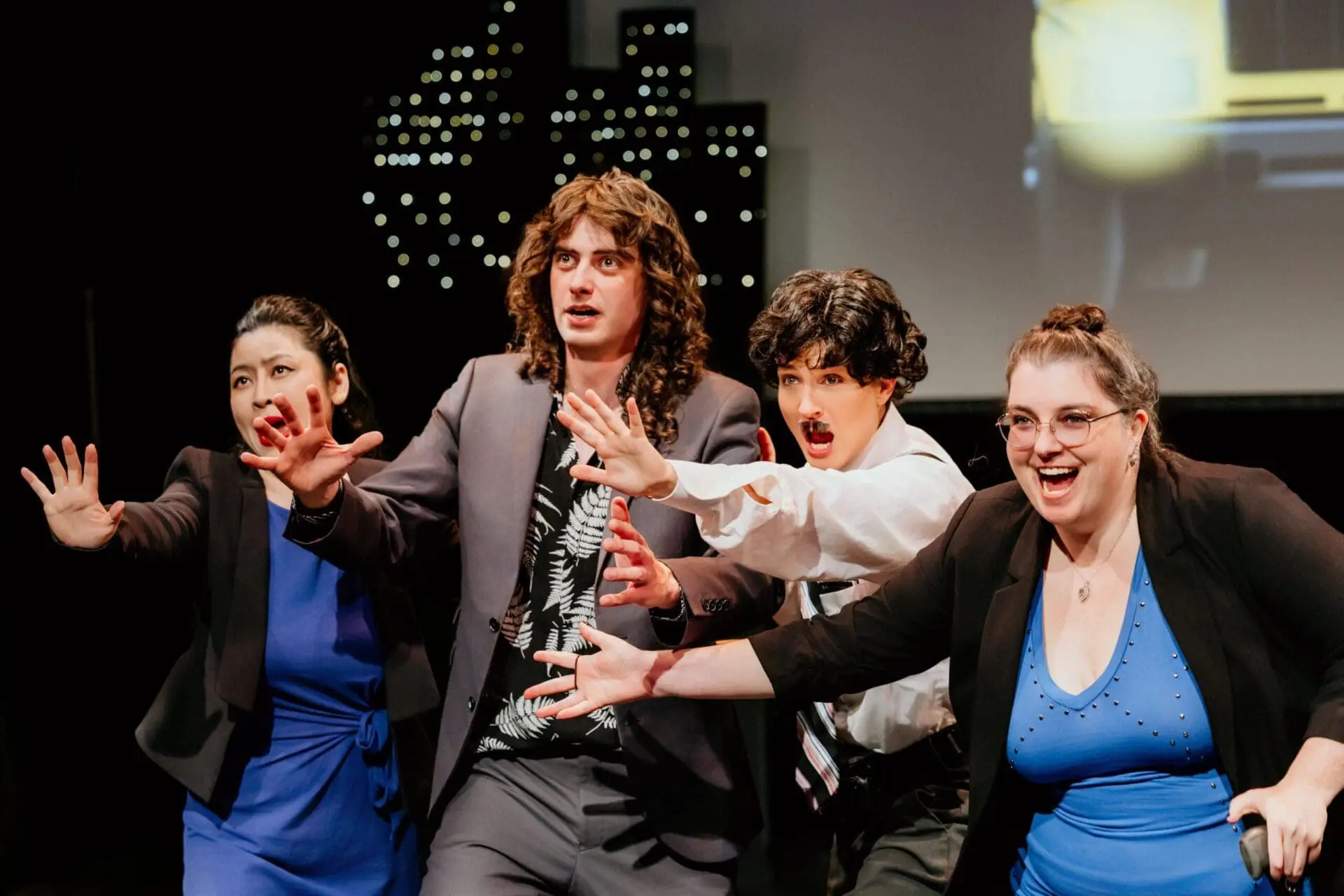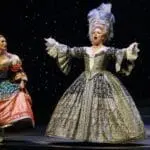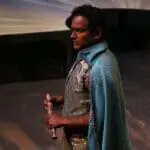Billed as “not your grandmother’s opera,” North Shore Light Opera Society’s (NSLOS) Magic Flute Reimagined is a fine romp through and around Mozart’s old chestnut. And while it’s billed as such, I believe this version will entertain grandmother and grandchild alike. It certainly warmed the hearts of those who ventured out on the rainy spring evening and provided us with a solid musical and theatrical experience. Magic Flute Reimagined is an intimate and immersive experience for the opera goer, especially one who is used to the big theatre experience, and in its simplicity is the delight. Somehow with this Flute, the NSLOS has brought opera back to the people, back to basics, and for that they are to be congratulated.
Magic Flute Reimagined is conducted by Edette Gagné. The 13-piece orchestra (chamber orchestration by Daniel James) and 500-page thump of a score, based on Ruth and Thomas Martin’s translation and arrangement (G. Schirmer edition, 1951), is masterfully conducted, a joy to listen to, and somewhat revelatory. For me, the experience of hearing Magic Flute in this small theatre allowed me to think about the score in a fresh way. As an audience member said to me, “I love this because I feel like I’m sitting in the middle of the production.”
Directed by Metropolitan Opera Award-winning lyric soprano Robin Hahn, the opera is, astonishingly, the North Vancouver company’s 78th production. The NSLOS is clearly a performance society with legs. That NSLOS is “amateur” should remind us that the root of the descriptor is actually “ama,” for “love,” and in no way should it be construed as second-rate. It was clear that this opera – on a shoestring budget – was constructed through much hard work and fueled by a real passion for the artform among its very competent cast.
Gagné and Hahn, with input from the singers, updated half the text to reflect a 21st-century “crypto bro” ethos. This update is consistent with earlier practices of tweaking libretti and translating it into local languages, removing arias and recitative as necessary. It is the playfulness of the updates in NSLOS’s Magic Flute that reminds us that the opera artform is a living thing. Gagné and Hahn have clearly honoured the music of Mozart, but they have refreshed it and made it a 21st-century performance.
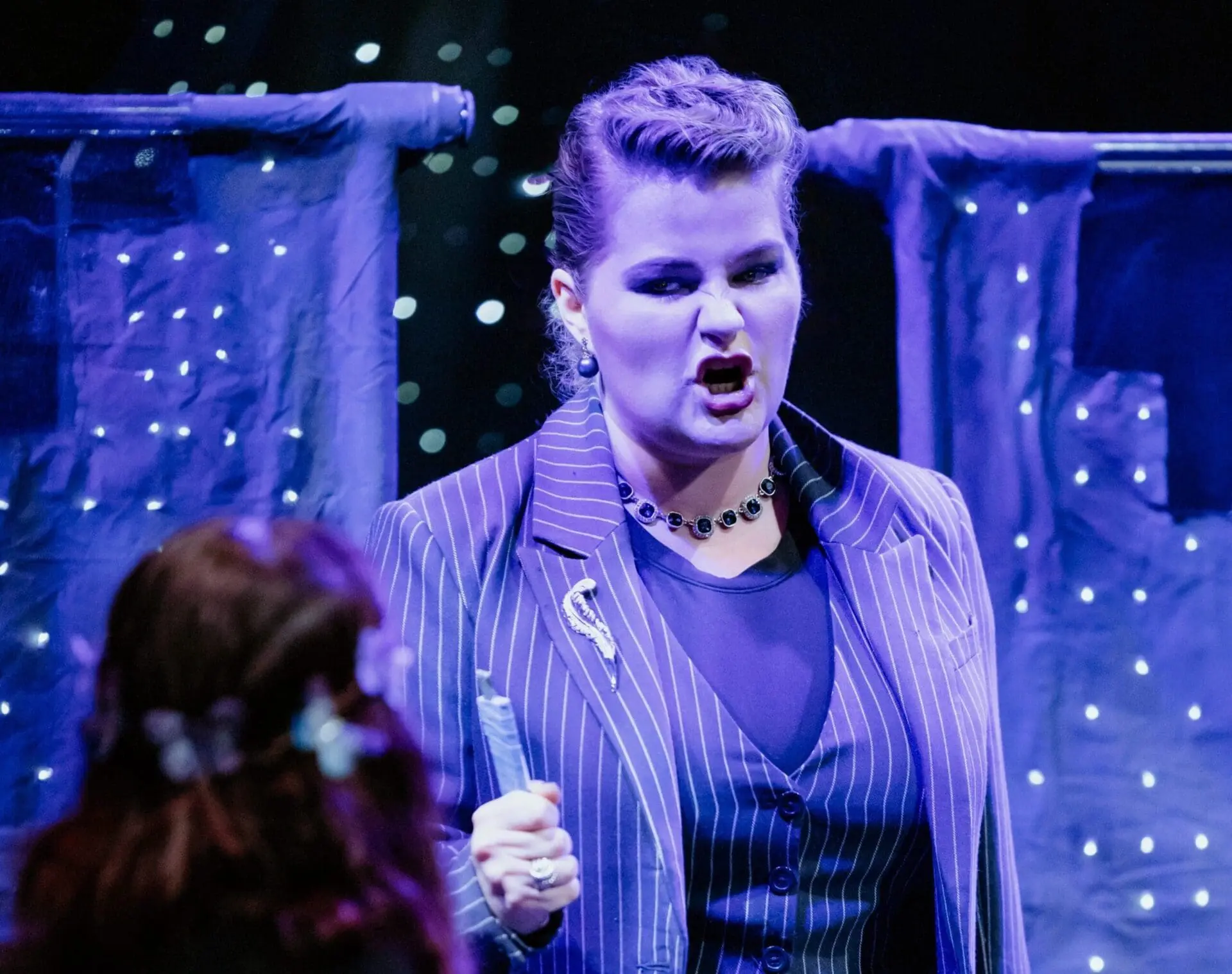
Photo Credit: Michelle Diamond, Diamond’s Edge Photography
The Queen and CEO of NightTECH (Hannah Ernst) tells her daughter Pamina (Cara Guri) to undermine NightTECH’s corporate rival
Believing that comic opera should be comic, zingers such as “being a dirtbag was their fate,” existed throughout but never grew tiresome or overworked. Gone too is the overt racism and the misogyny of the original libretti, and in its place was a contemporary take and lexicon that is humorous but also gently makes its point. Above all, I’m relieved to say that NSLOS’s Magic Flute Reimagined is no polemic that hammers the audience on the head with a tale of inequities in a digital age, even if it does include the odd reference to “Elon.”
Roles have been tweaked. The Queen of the Night, CEO of Night Tech, is sung skillfully by Hannah Ernst. Her business rival, Sarastra, the baritone Richard Cunningham (in their first post-transition role), whose singing as CEO of the non-profit Digital Access to You (DAY) is some of the evening’s best, provides a contemporary foil. The tech-sector job hunting Tamino is sung by tenor Laren Steppler, who tackles his role with humour and skill. Steppler has sung the role more conventionally in German, and in this version, intriguingly, plays a “magic flute” that is an electric bass. This is particularly effectively as he accompanies himself for some arias. Pamina, sung by soprano Cara Guri brings a sensitive and contemporary interpretation to the role as a social justice advocate.
Mikey Enriquez’s Monostatos, as the world’s worst boss, punctuates his performance with the best gold jacket and ruby shoes I’ve ever seen providing genuine laughs. Papageno, a west-coast macramé-wearing inventor, played by mezzo Bri LeFever, brings a unifying and tender humour to the opera, while Papagena, Erika Pryer (who understudies the Queen of the Night and will be singing the role for one performance) has a rich, velvety voice. The cast is rounded out with a trio of young teen performers as “tour guides,” a trio of “executive assistants,” “R and D Employees” and a very capable chorus. All of the ensemble work is strong throughout.
I’ll finish this review with observations by my spouse Jeff, an “everyman” who attends opera with me. “I felt relieved at how accessible opera can be. I thought that the work was quality, there was no ‘cringe,’ all the principals were strong and entertaining. It was every bit as enjoyable for me as Vancouver Opera’s Madama Butterfly [which we saw earlier in May], because I enjoyed watching people enjoy themselves singing Mozart. It really made me feel I could just enjoy the music of Mozart.” And he did – thoroughly.
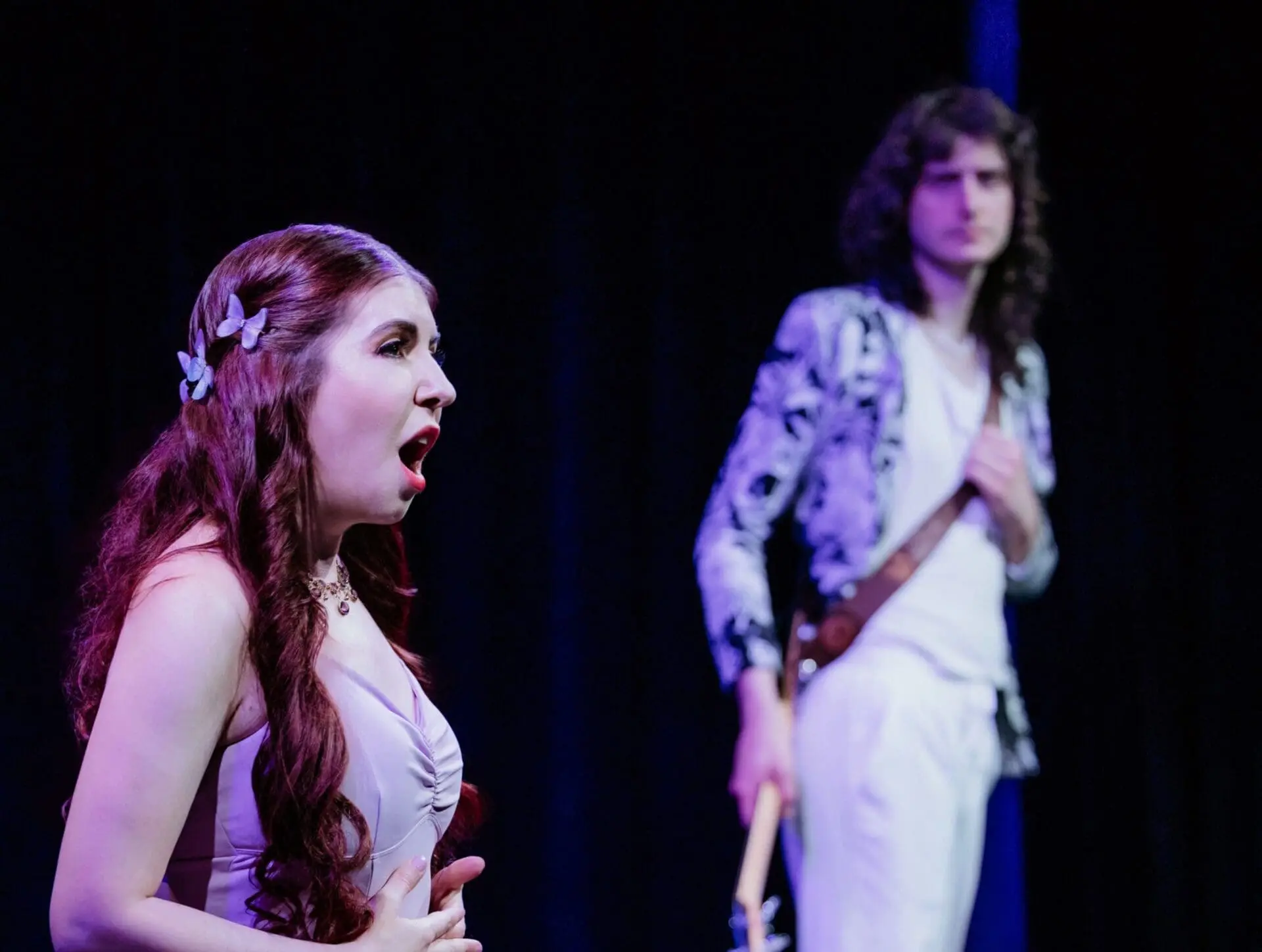
Photo Credit: Michelle Diamond, Diamond’s Edge Photography
Pamina (Cara Guri), heartbroken by Tamino’s (Laren Steppler) rejection, considers deleting all her social media accounts
Opera Canada depends on the generous contributions of its supporters to bring readers outstanding, in-depth coverage of opera in Canada and beyond. Please consider subscribing or donating today.


